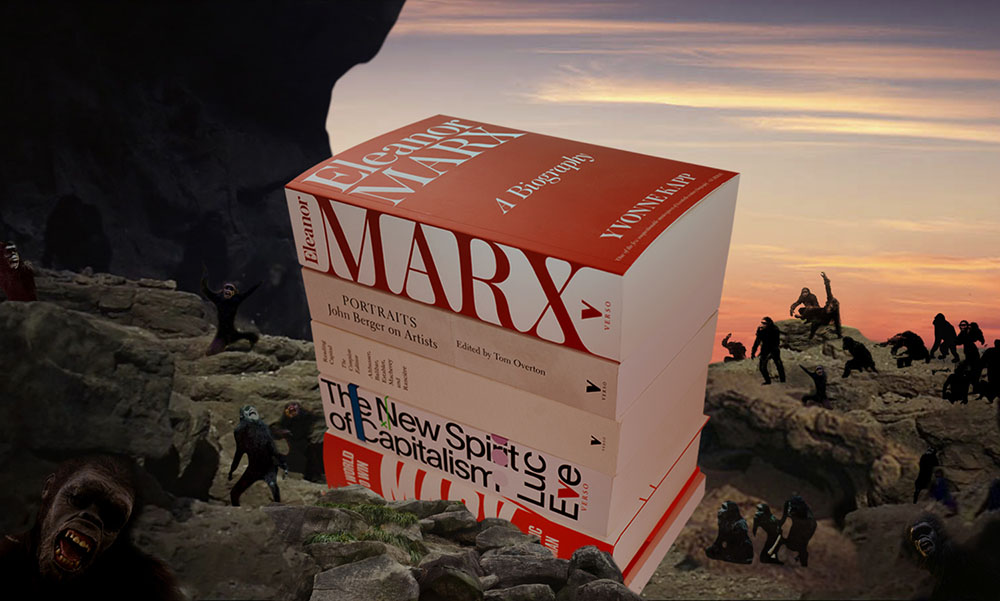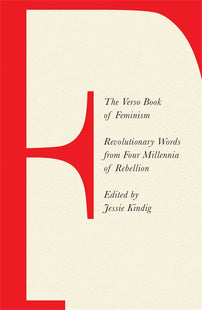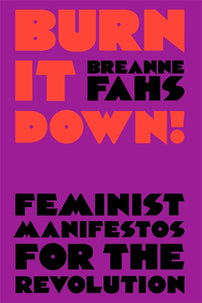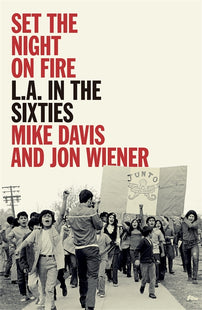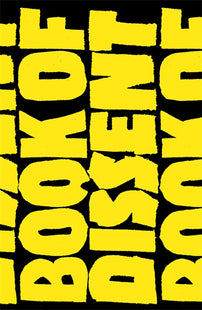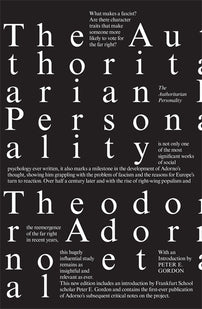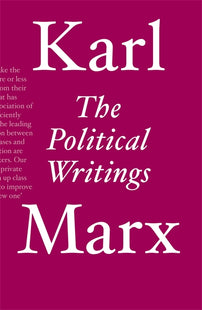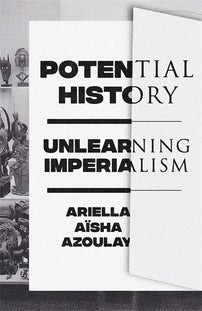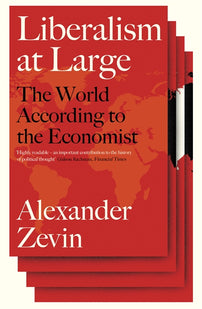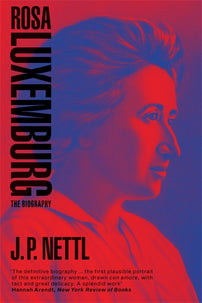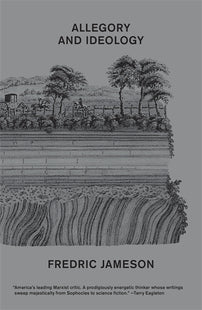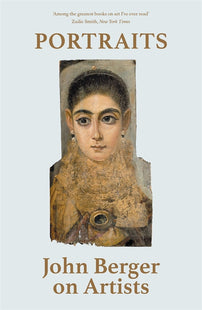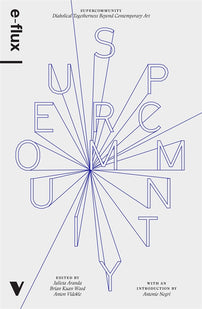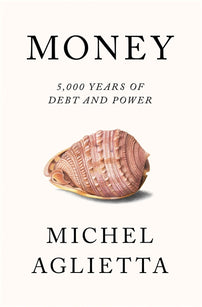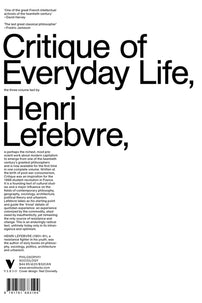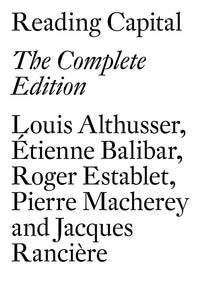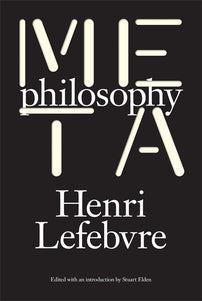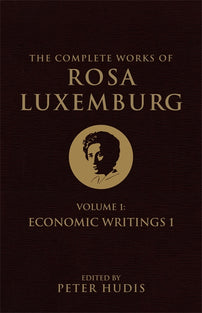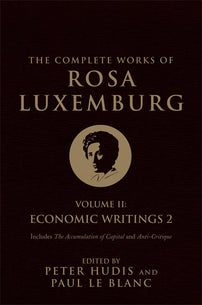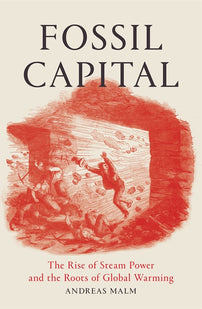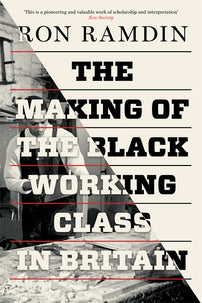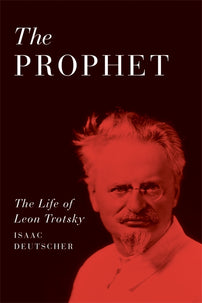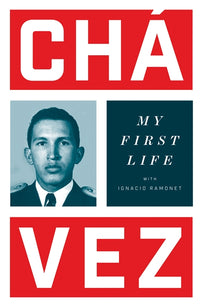Dive in to one of our HUGE books!
Make your next read a MASSIVE one with these BIG books!

You might struggle to carry it around in your bag, or to even finish it, but we think the effort is worth it for Lefebvre's classic Critique of Everyday Life, or Marx's complete political writings.
An unprecedented collection of feminist voices from four millennia of global history.
[book-strip index="2" style="buy"]In this landmark collection spanning three centuries and four waves of feminist activism and writing, Burn It Down! is a testament to what is possible when women are driven to the edge. The manifesto—raging and wanting, quarreling and provoking—has always played a central role in feminism, and it’s the angry, brash feminism we need now.
[book-strip index="3" style="buy"]Mike Davis and Jon Wiener provide the first comprehensive movement history of L.A. in the sixties, drawing on extensive archival research and dozens of interviews with principal figures, as well as the authors’ storied personal histories as activists.
[book-strip index="4" style="buy"]This anthology, global in scope, presents voices of dissent from every era of human history: speeches and pamphlets, poems and songs, plays and manifestos. Every age has its iconoclasts, and yet the greatest among them build on the words and actions of their forerunners. The Verso Book of Dissent should be in the arsenal of every rebel who understands that words and ideas are the ultimate weapons.
[book-strip index="5" style="buy"]Sinews of War and Trade is the story of what the making of new ports and shipping infrastructure has meant not only for the Arabian peninsula itself, but for the region and the world beyond. The book is an account of how maritime transportation is not simply an enabling companion of trade, but central to the very fabric of global capitalism.
[book-strip index="6" style="buy"]Much has been written on how colonized peoples took up British and European ideas and turned them against empire when making claims to freedom and self-determination. Insurgent Empire sets the record straight in demonstrating that these people were much more than victims of imperialism or, subsequently, the passive beneficiaries of an enlightened British conscience—they were insurgents whose legacies shaped and benefited the nation that once oppressed them.
[book-strip index="7" style="buy"]What makes a fascist? Are there character traits that make someone more likely to vote for the far right? The Authoritarian Personality is not only one of the most significant works of social psychology ever written, it also marks a milestone in the development of Adorno’s thought, showing him grappling with the problem of fascism and the reasons for Europe’s turn to reaction. Over half a century later and with the rise of right-wing populism and the reemergence of the far-right in recent years, this hugely influential study remains as insightful and relevant as ever.
With a foreword by Tariq Ali, and including The Communist Manifesto, The Eighteenth Brumaire of Louis Bonaparte, The Class Struggles in France, and The Critique of the Gotha Programme, this volume shows Marx at his most astute, analysing the forces of global capitalism as they played out in the world around him.
[book-strip index="9" style="buy"]In this theoretical tour-de-force, renowned scholar Ariella Aïsha Azoulay calls on us to recognize the imperial foundations of knowledge and to refuse its strictures and its many violences.
Rather than looking for a new future, Azoulay calls upon us to rewind history and unlearn our imperial rights, to continue to refuse imperial violence by making present what was invented as “past” and making the repair of torn worlds the substance of politics.
[book-strip index="10" style="buy"]For nearly forty years, David Harvey has written and lectured on Capital, becoming one of the world’s foremost Marx scholars. Based on his recent lectures, this current volume—finally bringing together his guides to volumes I, II and much of III—presents this depth of learning to a broader audience, guiding first-time readers through a fascinating and deeply rewarding text. A Companion to Marx’s Capital offers fresh, original, and sometimes critical interpretations of a book that changed the course of history and, as Harvey intimates, may do so again.
[book-strip index="11" style="buy"]Since 1843, the Economist has been the single most devoted and influential champion of liberalism anywhere in the world. But what exactly is liberalism, and how has the liberal message evolved? Liberalism at Large presents a history of liberalism on the move, confronting the challenges that classical doctrine left unresolved: the rise of democracy, the expansion of empire, the ascendancy of finance.
[book-strip index="12" style="buy"]Rosa Luxemburg is one of the most controversial and important figures in the development of Marxism. In many respects her role is unique; she was at the same time one of the founders of modern communism and one of its severest critics. In this classic biography J.P. Nettl provides an extraordinary portrait of one of the leading twentieth century revolutionaries and political thinkers.
[book-strip index="13" style="buy"]Moving between Jamaican plantations, the hills of Devon, the port cities of Bristol, Cardiff, and Kingston, and the working-class estates of South London, Carby’s family story is at once an intimate personal history and a sweeping summation of the violent entanglement of two islands. In charting British empire’s interweaving of capital and bodies, public language and private feeling, Carby will find herself reckoning with what she can tell, what she can remember, and what she can bear to know.
[book-strip index="14" style="buy"]This major new work by Fredric Jameson is not a book about “method,” but it does propose a dialectic capable of holding together in one breath the heterogeneities that reflect our biological individualities, our submersion in collective history and class struggle, and our alienation to a disembodied new world of information and abstraction.
[book-strip index="15" style="buy"]Yvonne Kapp’s monumental biography of the daughter of Karl Marx who became a radical activist.
[book-strip index="16" style="buy"]Epic new biography of Karl Marx for the 200th anniversary of his birth. Compulsively readable and meticulously researched, A World to Win demonstrates that, two centuries after Marx’s birth, his work remains the bedrock for any true understanding of our political and economic condition.
[book-strip index="17" style="buy"]Now a classic of Marxian economics, The Limits to Capital provides one of the best theoretical guides to the history and geography of capitalist development. In this edition, Harvey updates his seminal text with a substantial discussion of the turmoil in world markets today. Delving into concepts such as “fictitious capital” and “uneven geographical development,” Harvey takes the reader step by step through layers of crisis formation, beginning with Marx’s controversial argument concerning the falling rate of profit and closing with a timely foray into the geopolitical and geographical implications of Marx’s work.
[book-strip index="18" style="buy"]Atlas of Emotion is a highly original endeavour to map a cultural history of spatio-visual arts. In an evocative montage of words and pictures, emphasises that “sight” and “site” but also “motion” and “emotion” are irrevocably connected. In so doing, Giulana Bruno touches on the art of Gerhard Richter and Annette Message, the film making of Peter Greenaway and Michelangelo Antonioni, the origins of the movie palace and its precursors, and her own journeys to her native Naples. Visually luscious and daring in conception, Bruno opens new vistas and understandings at every turn.
[book-strip index="19" style="buy"]John Berger, one of the world’s most celebrated art writers, takes us through centuries of drawing and painting, revealing his lifelong fascination with a diverse cast of artists. In penetrating and singular prose, Berger presents entirely new ways of thinking about artists both canonized and obscure, from Rembrandt to Henry Moore, Jackson Pollock to Picasso. Throughout, Berger maintains the essential connection between politics, art and the wider study of culture. The result is an illuminating walk through many centuries of visual culture, from one of the contemporary world’s most incisive critical voices.
[book-strip index="20" style="buy"]When he died of an AIDS-related condition in 1984, Michel Foucault had become the most influential French philosopher since the end of World War Two. His powerful studies have had a lasting impact on philosophers, historians, critics, and novelists the world over. But as public as he was in his militant campaigns on behalf of prisoners, dissidents, and homosexuals, he shrouded his personal life in mystery. In The Lives of Michel Foucault David Macey gives the richest account to date of Foucault’s life and work, informed as it is by the complex issues arising from his writings.
[book-strip index="21" style="buy"]“A detailed, fast-flowing account of how repeatedly guileful Keynesianism crisis management has saved the elite by reengineering tragedy … rewarding reading.” – Danny Dorling, author of Inequality and the 1%
[book-strip index="22" style="buy"]In Legislature by Lot, John Gastil and Erik Olin Wright make the case for pairing a sortition body with an elected chamber within a bicameral legislature. Gastil is a leading deliberative democracy scholar, and Wright a distinguished sociologist and editor of the Real Utopias series, of which this is a part. In this volume, they bring together critics and advocates of sortition who have studied ancient Athens, deliberative polling, political theory, social movements, and civic innovation.
[book-strip index="23" style="buy"]Leading artists, theorists, and writers exhume the dystopian and utopian futures contained within the present.
[book-strip index="24" style="buy"]The major French economist offers a new theory of money.
[book-strip index="25" style="buy"]Acclaimed artist Kenneth Goldsmith’s thousand-page beautiful homage to New York City.
[book-strip index="26" style="buy"]Lefebvre's classic analysis of daily life under capitalism in one beautifully-designed complete volume.
[book-strip index="27" style="buy"]A classic work of Marxist analysis, available unabridged for the first time.
[book-strip index="28" style="buy"]In Metaphilosophy, Henri Lefebvre works through the implications of Marx’s revolutionary thought to consider philosophy’s engagement with the world.
[book-strip index="29" style="buy"]Absolute Recoil is a startling reformulation of the basis and possibilities of contemporary philosophy. While focusing on how to overcome the transcendental approach without regressing to naïve, pre-Kantian realism, Žižek offers a series of excursions into today’s political, artistic, and ideological landscape, from Arnold Schoenberg’s music to the films of Ernst Lubitsch.

First volume of a major project to publish the complete works of a remarkable social theorist.
[book-strip index="31" style="buy"]The second volume in Rosa Luxemburg’s Complete Works, entitled Economic Writings 2, contains a new English translation of Luxemburg’s The Accumulation of Capital: A Contribution to the Economic Theory of Imperialism, one of the most important works ever composed on capitalism’s incessant drive for self-expansion and the integral connection between capitalism and imperialism.
[book-strip index="32" style="buy"]New edition of this major work examining the development of neoliberalism.
[book-strip index="33" style="buy"]How capitalism first promoted fossil fuels with the rise of steam power.
The story of the remarkable resurgence of right-wing extremists in the United States.
[book-strip index="34" style="buy"]A classic history of the role of Black working-class struggles throughout the twentieth century.
[book-strip index="35" style="buy"]Classic biography of Russian revolutionary Leon Trotsky, now collected in a single volume.
[book-strip index="36" style="buy"]The transatlantic story of six radical pioneers at the turn of the twentieth century.
[book-strip index="37" style="buy"]Hugo Chávez, military officer turned left-wing revolutionary, was one of the most important Latin American leaders of the twenty-first century. This book tells the story of his life up to his election as president in 1998.
